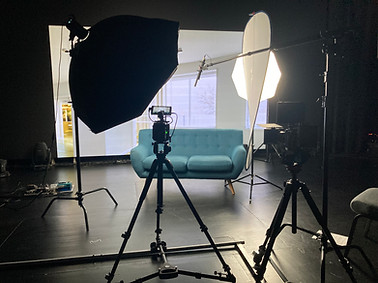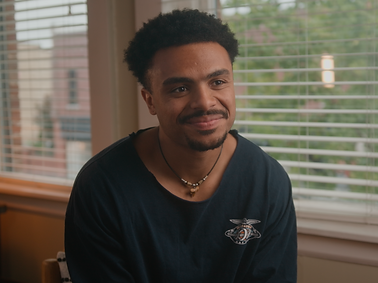
Three-Point Lighting: The Holy Trinity
Imagine your lighting setup as a trio – the key light, the fill light, and the backlight. The key light is your star, casting the primary illumination on your subject. Its sidekick, the fill light, steps in to soften harsh shadows, creating a more balanced look. The fill light doesn't have to be an actual light but can be n object that can reflect/bounce light from the key light.
(See the bounce on the right in the image)
Meanwhile, the backlight adds a touch of magic by separating your subject from the background, adding depth and dimension.
Experiment with Angles and Intensity
The beauty of video lighting lies in its versatility. Play with the angles of your lights to find the most flattering setup for your subject. Adjust the intensity to control the mood – softer lighting for a romantic scene, or higher intensity for a dramatic effect. Don't be afraid to experiment until you achieve the desired atmosphere.


Natural Light and Color Temperature
Consider harnessing the power of natural light whenever possible. Position your subject near windows or open spaces to benefit from soft, diffused daylight. Additionally, be mindful of color temperature – the warm glow of incandescent lights differs from the cool hues of daylight. Maintain consistency or embrace the creative contrast based on the mood you wish to convey.
Don't Forget the Shadows
Shadows aren't always the enemy; they can add depth and interest to your composition. However, excessive or harsh shadows may distract from your subject. Use your fill light judiciously to control shadow intensity, striking the right balance for a visually appealing result.


Equipment Matters, But Start Simple
While advanced lighting kits and equipment can elevate your production, don't let a lack of gear discourage you. Start with what you have – natural light, desk lamps, or affordable LED lights. As you grow, consider expanding your toolkit to refine your skills further.
In conclusion, mastering video lighting is an art that evolves with practice. Embrace the learning process, experiment fearlessly, and soon you'll be illuminating your videos with a professional touch. Happy filming!
